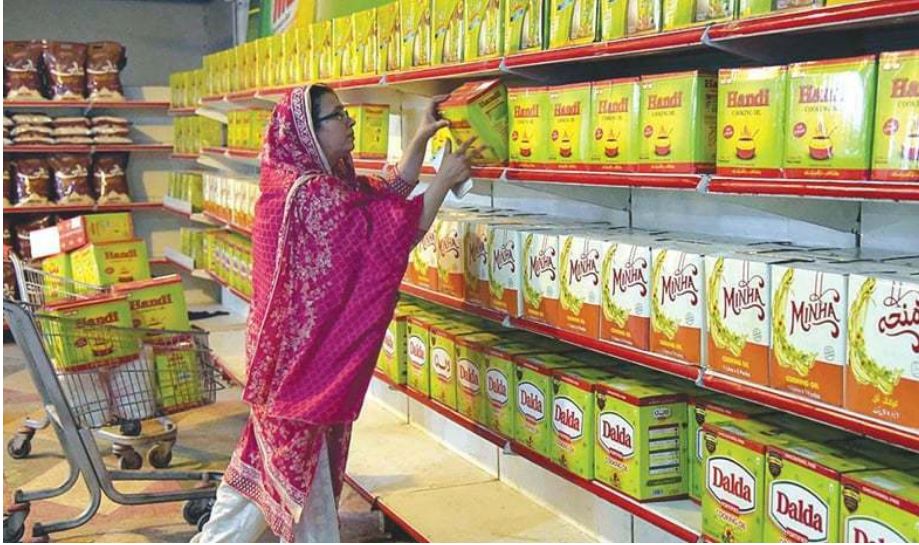As Prime Minister Imran Khan announced the “biggest welfare package in the country’s history”, the Utility Stores Corporation (USC) on Wednesday increased the prices of ghee and cooking oil.
Meanwhile, opposition leaders heaped scorn at the prime minister’s announcement, with many saying that the subsidies were “too little, too late”.
According to the price list available with that is effective from Nov 3 (today), the prices of various brands of cooking oil and ghee have been increased by up to Rs65 and Rs53 per litre, respectively.
The prices of both commodities are the most expensive in Karachi zone.
Earlier today, PM Imran had announced a package to mitigate the hardships of the inflation-hit public. Under the Rs120 billion subsidy programme, eligible families will be able to purchase ghee, flour, and pulses at 30 per cent lower prices for the next six months, he said.
The new package comes more than a year after the premier had approved a Rs71 billion package, disbursed in different phases, for providing relief to the poor through the USC. The package had included lowering the prices of essential edible items, including flour, cooking oil, rice and pulses.
At the time, PM Imran had said that ration cards would be provided to deserving families so that they could buy essential edible items at subsidised rates. However, it remains to be seen how the new package will be implemented.
‘PM’s relief package is a joke’
Meanwhile, some politicians and journalists questioned the premier’s speech and the government’s much-touted relief package.
PPP Chairman Bilawal Bhutto-Zardari said that the prime minister’s relief package was “nothing but a joke”.
“The prime minister claims a few families will benefit from the 30pc discount for only six months on ghee, flour and lentils. In three years, ghee increased 108pc, flour 50pc and gas 300pc. Thirty per cent is too little, too late for 200 million people facing historic inflation, poverty and unemployment,” he said.











